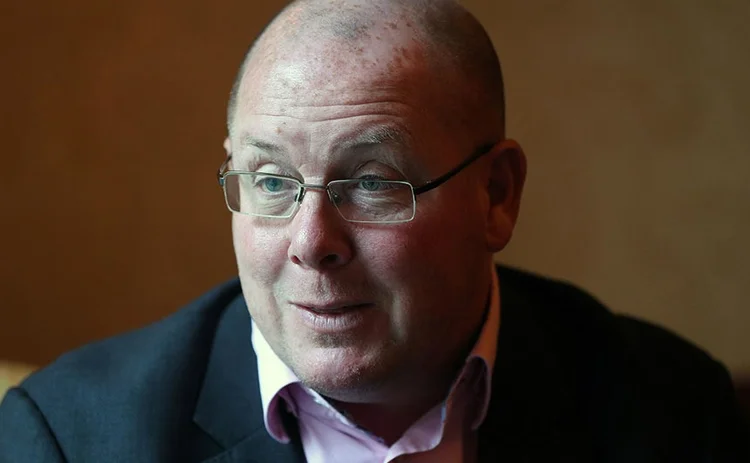
Leeson: risk managers should be personally liable for trades
Former rogue trader says new UK rules could "change the way people look at risk"

Former rogue trader Nick Leeson has welcomed the UK's new rules that make senior risk managers personally accountable for the positions put on by traders under their jurisdiction.
Leeson, the former Barings Bank trader whose £827 million ($1.4 billion) losses on unauthorised trades in the Singaporean and Japanese futures markets led to the collapse of the UK merchant bank in 1995, says a culture still exists within banks where traders are not sufficiently challenged to explain complex, multi-legged trades.
"The risk managers have to take more on. If a risk manager doesn't understand the trade a star trader is trying to put on, there has to be a way of stopping them. Someone on the risk committee has to say that they fully understand it, and that they're going to take responsibility for it. To this day, a lot of traders are still able to railroad certain trades through. Until that changes, there will always be a problem," said Leeson, who gave the keynote address at the Risk South Africa conference in Cape Town on March 10.
He welcomed the UK's Senior Managers Regime's attempts to tackle the issue. The regime, which entered into force this week, makes a "reckless" decision that causes a bank to fail a criminal offence carrying a maximum of seven years in prison and an unlimited fine. The rules apply to individuals at banks who fulfil 17 designated senior management functions, ranging from the chief executive and heads of risk and finance to the chairs of the risk, audit and remuneration committees.
Fines have been astronomical over the last few years and clearly haven't made any impact
Nick Leeson
"If the Senior Managers Regime is implemented in the way that it's deemed to want to work, then it has the potential to change the way people look at risk within their organisation. People will be far more focused on challenging [staff], and challenging what's going on in the organisation below them if they think there's personal responsibility there. Fines have been astronomical over the last few years and clearly haven't made any impact," said Leeson.
Leeson suggested the rules marked an evolution in the Bank of England's approach to conduct risk and were a far cry from the regime that held sway when it regulated Barings.
"The Bank of England was the regulator during my time at Barings. They weren't particularly good," he said.
Writing on Risk.net this week, Paul Fisher, executive director at the Bank of England and former deputy head of the Prudential Regulation Authority, said the rules were designed to foster a culture of personal responsibility.
"Their clear purpose is to make it clear who is accountable for what within a firm. The foremost objective of that is not so we know who to punish when things go wrong. It is to make sure someone is taking full responsibility for the right outcomes so misbehaviour becomes very much rarer," he said.
Only users who have a paid subscription or are part of a corporate subscription are able to print or copy content.
To access these options, along with all other subscription benefits, please contact info@risk.net or view our subscription options here: http://subscriptions.risk.net/subscribe
You are currently unable to print this content. Please contact info@risk.net to find out more.
You are currently unable to copy this content. Please contact info@risk.net to find out more.
Copyright Infopro Digital Limited. All rights reserved.
As outlined in our terms and conditions, https://www.infopro-digital.com/terms-and-conditions/subscriptions/ (point 2.4), printing is limited to a single copy.
If you would like to purchase additional rights please email info@risk.net
Copyright Infopro Digital Limited. All rights reserved.
You may share this content using our article tools. As outlined in our terms and conditions, https://www.infopro-digital.com/terms-and-conditions/subscriptions/ (clause 2.4), an Authorised User may only make one copy of the materials for their own personal use. You must also comply with the restrictions in clause 2.5.
If you would like to purchase additional rights please email info@risk.net
More on Risk management
Why the survival of internal models is vital for financial stability
Risk quants say stampede to standardised approaches heightens herding and systemic risks
Clearing members welcome LME default fund cap
But 2022 nickel crisis still makes hedge funds doubt banks would foot the bill for default at all
Shaking things up: geopolitics and the euro credit risk measure
Gravitational model offers novel way of assessing national and regional risks in new world order
Crypto custody a bit(coin) closer after US accounting U-turn
Federal banking supervisors expected to eventually relax regimes for safeguarding digital assets
EU racing to comply with active account rules
Industry wants simpler route to exemptions ahead of ‘challenging’ deadline for new clearing regime
Banks urged to track vendor AI use, before it’s too late
Veteran third-party risk manager says contract terms and exit plans are crucial safeguards
JSCC plans to open JGB clearing to foreign investors
Clearing house aims to boost cleared market liquidity in Japanese government bonds
Large banks safer for CCPs than they get credit for
Plentiful pre-positioned liquidity softens the blow of resolution, new research argues








